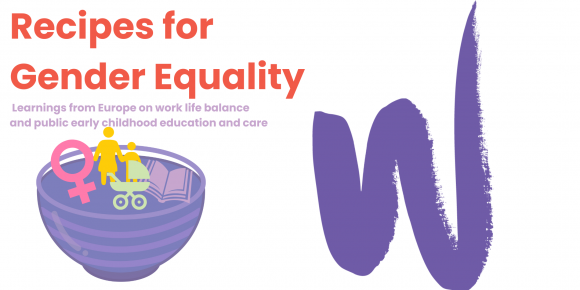Ireland must look to European successes to build an integrated, public system of childcare
Published: Wednesday, November 26, 2025

Ireland remains an outlier in Europe when it comes to early childhood education and care and family leave. Despite welcome increases in public investment and extensions to leave, Ireland’s system still lacks the structural reforms needed to make these supports effective and equitable.
Successes from other European countries have shown how it can be done differently. To learn from their experiences and discuss how Ireland can develop an integrated model of public early education and care and adequate family leave, the National Women’s Council today (Wednesday, 26th November) hosted a major European conference Recipes for Gender Equality.
Supported by the Communicating Europe Initiative, the conference brought together early years educators, academics, policymakers and civil society organisations to examine how Ireland can take inspiration from European Early Childhood Education and Care models.
Developments at a European level, such as the Work Life Balance Directive and the European Care Strategy, show the benefits of coordinated, public approaches to childcare and leave. At the same time, individual member states have shown how gender equality can be advanced at a national level. Ireland now has an opportunity to learn from these models and build a system that works better for women, children and families.
Opening the event today, keynote speaker Dr Helen Penn, Professor of Early Childhood at the University of East London, set out international evidence showing that countries with strong public Early Childhood Education and Care systems and properly paid family leave achieve better outcomes for women’s equality, children’s development, and workforce sustainability.
She stated:
“Ireland unfortunately has one of the poorest records in Europe in supporting women and children. Even with maternity and parental leave and flexible working arrangements, childcare is the lynchpin if mothers are to stay in the workforce. Good, accessible and high-quality childcare changes mothers’ lives.
Accessible and high-quality childcare and education which supports children directly, as well as enabling mothers to work is essential for mothers’ full participation in society.”
In Ireland, women continue to do twice as much unpaid care work as men, contributing to lower incomes, lower wealth and fewer opportunities across their lives. Limited access to affordable, flexible and inclusive public childcare, alongside family leave payments that are inadequate in both value and duration, restricts women’s ability to participate fully in society. Early years educators, most of who are women, remain undervalued and underpaid, while many small and independent providers, also largely led by women, are struggling to stay open.
Ireland’s flat-rate benefit payment of €289 per week for family leave is far below the minimum wage, creating financial barriers and contributing to low uptake of paternity leave. Delivering Pay-Related Parents’ Benefit and expanding maternity and other forms of leave is an urgent priority.
Donal Swan, Women’s Economic Equality Co-ordinator, National Women’s Council, said:
“When you have no choice but to take on unpaid caring responsibilities, women in Ireland are left with lower incomes, weaker pensions and fewer opportunities. We also have one of the highest levels of private childcare provision and some of the highest fees in Europe, even with public subsidies.
Funding alone cannot fix a system that is structurally flawed. Only a universal, public system of early childhood education and care that is already a reality in many European countries, can deliver the affordability, quality and sustainability that families and educators need. This must go hand in hand with effective and adequately paid family leave that offers real choices to women and parents in caring for their young children.”
Darragh O’Connor, Head of Strategic Organising and Campaigns at SIPTU, said:
“Our government is sleepwalking towards a corporate takeover of childcare, where community and small independent providers are being squeezed out. This is bad for quality, affordability and the sustainability of the sector.
Only by moving towards a new public model of childcare (Early Years) can government avoid a corporate takeover and deliver on its commitment to €200 a month childcare.”
The event was supported by the Together for Public Alliance which includes over 40 civil society organisations campaigning for a public system of early childhood education and care.
Speakers and contributors at today’s conference also included, Susanne Rogers, Social Justice Ireland; Ieva Zumbyte, University College Dublin; Martino Serapioni, COFACE (via Zoom); Barbara Helfferich, Gender5plus (via Zoom); Samantha Howe, EPSU (via Zoom); Professor Jennie Stephens, Maynooth University; Louise Bayliss, SVP; Darragh O’Connor, SIPTU; Maria Joyce, National Traveller Women’s Forum; Elaine McQuillan, StartBright; Alexandra Brennan, Northern Ireland Women’s Budget Group; Annie Waithira Burke, AkiDwA
Find out more here: https://togetherforpublic.nwci.ie/
